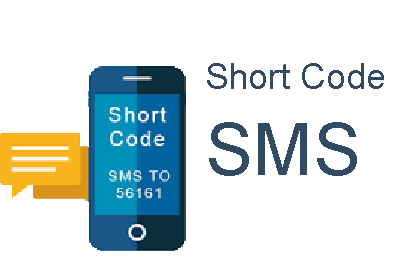In the modern healthcare environment, timely communication between hospitals and patients is essential. With the growing demand for personalized healthcare and instant updates, hospitals are adopting smarter tools to enhance patient experience. Collaborating with a reliable short code sms service provider in India empowers hospitals to streamline communication, boost engagement, and ensure better health outcomes. Short code SMS services offer instant, secure, and wide-reaching communication that meets the dynamic needs of healthcare providers.
Use of Short Code SMS Services
Sending Appointment Reminders to Reduce No-Shows
Hospitals face a significant number of missed appointments daily, affecting patient care and doctor schedules. Short code SMS helps reduce no-shows by sending automated appointment reminders. Patients receive concise messages such as “Reminder: Your appointment with Dr. Mehta is scheduled for 4 PM today at City Hospital.” These alerts ensure patients are informed and ready, improving hospital efficiency and time management.
Sharing Test Results and Follow-Up Schedules Securely
Short code SMS is ideal for notifying patients when their test results are ready or when a follow-up visit is due. Rather than calling the hospital or waiting in queues, patients can get instant messages like “Your lab test reports are now available. Visit our website or call 56789 for assistance.” Such communication saves time and keeps the patient experience smooth and stress-free.
Educating Patients Through Health Tips and Awareness Campaigns
Hospitals can run preventive care campaigns and share health tips using short code SMS. Messages like “Drink plenty of water and avoid outdoor activity during peak summer hours – City Hospital” help promote healthier lifestyles. During disease outbreaks or vaccination drives, bulk messaging allows hospitals to alert thousands of patients instantly with verified information, reducing panic and misinformation.
Enabling Two-Way Communication for Queries and Feedback
Hospitals can engage patients directly by enabling two-way communication through short codes. Patients can text keywords like “APPT” or “CANCEL” to a designated number to book or cancel appointments. They can also reply to messages with queries or feedback, such as “Rate your visit with Dr. Shah today (1-5).” This interaction helps hospitals gather valuable insights and improve service quality.
Delivering Emergency Alerts and Critical Updates
In case of emergencies like mass casualty events or epidemic outbreaks, hospitals need to notify staff and patients quickly. Short code SMS offers an instant and reliable communication path. Alerts like “Emergency blood donors needed: B+ at Sunrise Hospital, Sector 10. Contact 56789” reach a wide audience within seconds. This ensures timely help and coordinated responses in critical situations.
Boosting Patient Engagement in Rural Areas
Many rural populations in India use basic mobile phones without internet access. Short code SMS services work on all phone types, making them perfect for rural healthcare outreach. Hospitals can send vaccination reminders, maternal care tips, or chronic disease management alerts to patients in remote areas. This expands healthcare access and builds trust in hospital services.
Simplifying Prescription Renewal and Medication Alerts
Patients on long-term treatment often forget to refill prescriptions or follow dosage schedules. Hospitals can send reminders like “Your hypertension medication is due for refill. Please contact the pharmacy at 56789.” These alerts encourage treatment adherence and improve long-term patient outcomes. It also reduces the risk of health complications from missed medications.
Promoting Health Camps and Free Check-Up Drives
Hospitals frequently organize free check-up camps, blood donation drives, and wellness programs. Short code SMS can be used to promote such initiatives. A message like “Join our free diabetes screening camp this Sunday at Sector 5 – City Hospital” ensures higher turnout and increased community participation. It also positions the hospital as a community-focused institution.
Streamlining Patient Registration and Digital Access
New patients can register with the hospital using simple keyword-based SMS formats. For instance, texting “REGISTER” to a short code like 56789 could initiate an automated reply with registration instructions or links. This reduces manual paperwork and makes onboarding easier for both patients and hospital staff.
Supporting Multilingual Communication for Inclusivity
India’s linguistic diversity can be addressed through multilingual short code SMS campaigns. Hospitals can segment their patient base and send messages in Hindi, Tamil, Bengali, or other regional languages. Personalized and localized messages make patients feel understood and respected, increasing satisfaction and engagement.
Enhancing Transparency with Billing and Payment Alerts
Hospitals can use short code SMS to share billing summaries, payment due dates, and e-receipts. A message such as “Your discharge bill is ₹4,750. Please make the payment at the billing counter – City Hospital” keeps patients informed and improves financial transparency. These alerts reduce confusion and ensure timely transactions.
Conclusion: A Patient-Centric Approach Through Short Code SMS
In India’s evolving healthcare ecosystem, patient engagement is no longer optional—it’s essential. Short code SMS services offer hospitals a powerful platform to connect with patients instantly, securely, and efficiently. From appointment reminders to health awareness and emergency communication, the possibilities are vast. Partnering with a trusted short code SMS service provider in India enables hospitals to deliver timely care, improve outcomes, and build lasting patient relationships. As digital transformation accelerates, short code SMS is proving to be a reliable, inclusive, and impactful tool for modern healthcare communication.
About Us:
SpaceEdge Technology appears to be a term that might refer to a company, concept, or technology related to space exploration or utilization. However, without further context, it's challenging to provide specific information.




